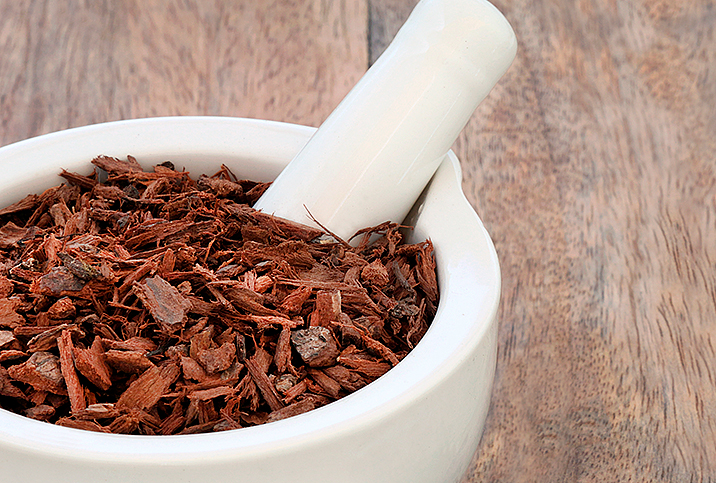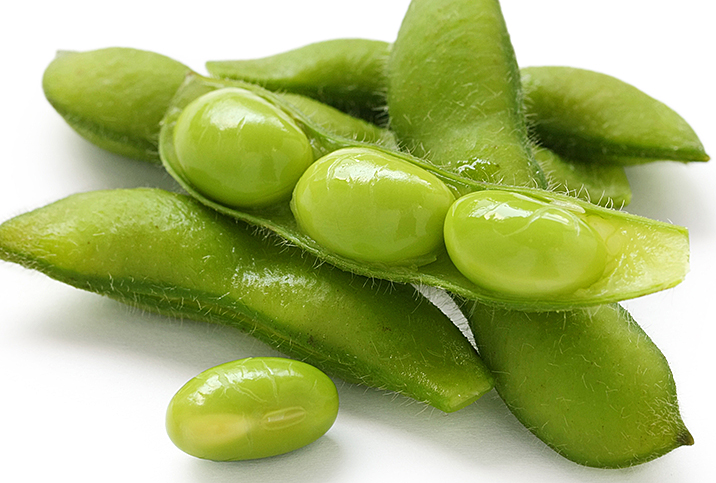An Enlarged Prostate Is a Natural Development

Pretty much everyone with a prostate is going to have to deal with its enlargement at some point. Too much growth can often lead to a diagnosis of benign prostatic hyperplasia (BPH), a condition that, despite the word benign, can have harmful consequences if left untreated. Men investigating this condition are likely to come across various online suggestions that mention supplements, dietary practices and exercises as a natural course of action, either preventively or as a means of treatment.
Is there any truth to these suggestions? Are there actions men can take at various ages to improve their chances of long-term prostate health? Yes, prescription medications and even surgical options can treat BPH, but what about natural and noninvasive measures?
Dealing with facts
Let's clarify one important fact before wading into the somewhat murky waters of prostate health and natural remedies and/or lifestyle preferences. No real data or solid evidence suggests it's possible to shrink the prostate gland or prevent enlargement and BPH through natural or homeopathic means.
Plenty of theory, research and speculation do exist on the subject within the realms of science, as well as natural and homeopathic medicine, but those ideas are largely unsupported by traditional Western medicine or scientific research.
Questions regarding natural remedies for prostate enlargement are simply not as well studied as other lines of inquiry, according to Amin Herati, M.D., a urologist and director of Male Infertility and Men's Health at Johns Hopkins Medicine in Baltimore. He implied it would be controversial to indicate there are any definitive ways to prevent prostate enlargement or treat it with nonpharmaceutical or natural, noninvasive measures.
No real data or solid evidence suggests it's possible to shrink the prostate gland or prevent enlargement and BPH through natural or homeopathic means.
"A lot of prostate size or enlargement is genetics and just physiologic imbalances between cell death and cell growth," Herati said. "The one thing that we notice is that when you transplant somebody from Asian countries like Japan and bring them to the U.S., their prostate kinetics will conform to the new country that they are in. And that's largely thought to be due to diet and lifestyle."
The influence of such day-to-day variables can be difficult to qualify (and quantify), however. This type of data often depends on self-reporting from patients and research participants, and such standalone data is relatively subject to error.
Environmental, genetic and lifestyle factors
"There's nothing that I can say, 'Listen, if you do this, then you will keep yourself from getting an enlarged prostate.' But what we will say is that a heart-healthy diet is a prostate-healthy diet," said Matthew Mutter, M.D., a urologist and member of multiple hospital committees in New Orleans. "But there's no lifestyle, so to speak, that I can say, 'Oh, that guy caused himself to have an enlarged prostate.'"
Great. So a healthy diet is good for the prostate. Surely we can point to a few supplements or "special" foods, right? Not really. In the case of prostate enlargement or BPH, we have a fundamental understanding of why it happens, but this knowledge doesn't translate well into actionable advice for the curious potential patient.
"The one thing that I think may be driving this, although it's likely multifactorial, is that there are likely multiple supplements out there that may have an effect on the cell signaling to modulate that difference between cell death and cell growth," Herati said.
Medicine's current understanding of cellular development and prostate health leads doctors to the conclusion that there's a certain degree of biological inevitability to prostate enlargement. If there are natural remedies or preventive treatments against prostate enlargement and BPH, then science has some catching up to do to understand those treatments. For now, it is simply understood that enlargement of the prostate happens because of the development and death cycle of the cells themselves.
"That's really where enlargement occurs, is that there's always cell development and always cell death," Herati said. "But when they are balanced, then the net effect is no growth. But when you have more cell growth, less cell death, the balance gets tipped and then you get enlargement."
Supplements are dubious at best
Keep in mind that the U.S. Food and Drug Administration does not review and approve dietary supplements for safety and effectiveness in most cases, and you should always consult your doctor before introducing a new supplement into your diet.
Many different herbs and ingredients found in natural supplements and other treatments have a long history of dubious correlation to improved prostate health. One such substance, for example, is derived from the saw palmetto plant.
"Initially, many years ago, data was that saw palmetto was actually helpful in men with lower urinary tract symptoms due to an enlarged prostate," Mutter said. "But science has now shown that it's not terribly better than a placebo; however, some men do get benefits from this."
Part of the reason for such varying research is because many conditions that affect the prostate, the urinary tract or the pelvic area are symptomatic according to a range of possible perceptions about pain and discomfort. The inexact nature of communication between doctor and patient is yet another factor that makes it difficult to discuss options for men concerned about prostate enlargement as they get older.
For now, men can keep track of some aspects of their health on the surface level (if not the cellular) to encourage the likelihood of maintaining a healthy prostate. The bottom line for most men is that it never hurts to be in shape or maintain a healthy diet. Prostate health frequently corresponds to many other areas of general health. Some of these, such as weight, are right in line with certain concerns that are already prevalent in the minds of many people.


















